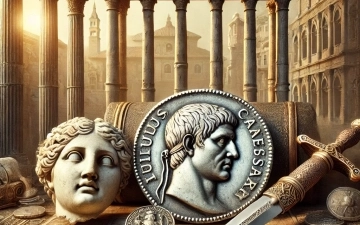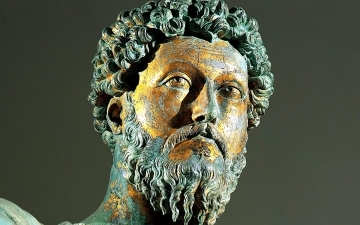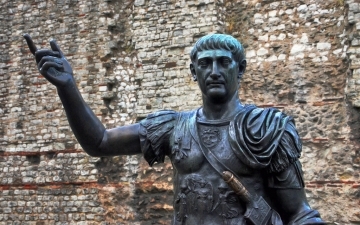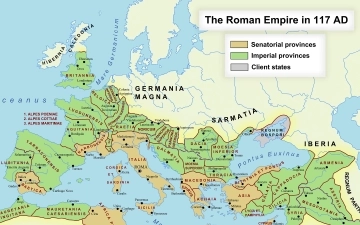Commodus: The Emperor Who Blurred the Lines Between Rome’s Greatest Ruler and Its Most Notorious Madman
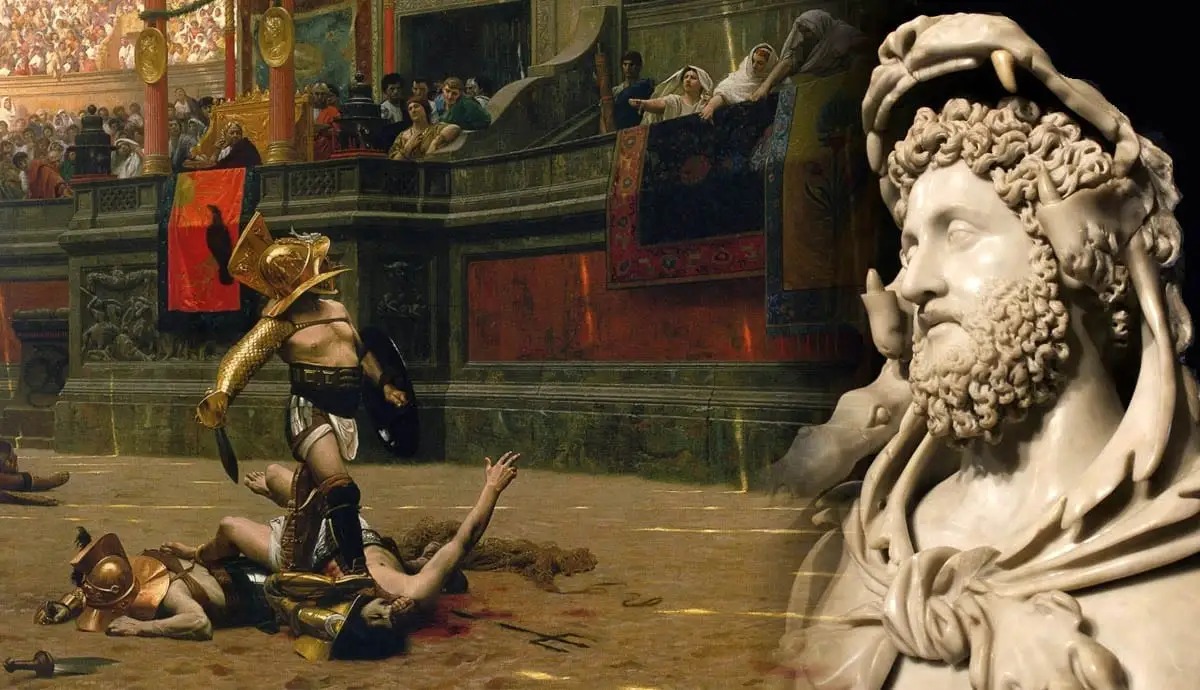
Commodus: a name that evokes both awe and abhorrence. Son of the legendary Marcus Aurelius, philosopher-emperor and author of the iconic Meditations, Commodus inherited a realm at the zenith of its power. Yet, his reign would irrevocably alter Rome's trajectory.
Was he a brilliant general, a cunning politician, or a megalomaniacal tyrant? History paints a complex portrait of a man who seemed to embody the best and worst of humanity.
On one hand, Commodus displayed early promise. He fought bravely alongside his father during the Marcomannic Wars, earning the title of Hercules Romanus. His early reign even witnessed some administrative successes. But this facade of competence quickly crumbled.
As power consumed him, Commodus descended into a world of delusions. He fancied himself a gladiator, battling wild animals and armed opponents in the arena. He demanded divine worship, adopting the titles of Hercules and Lord of the Universe. His paranoia led to mass executions of senators and courtiers.
Rome, once the mistress of the world, was plunged into chaos. The empire, once a beacon of law and order, was subjected to the whims of a madman.
But was Commodus entirely without redeeming qualities? Some historians argue that his reign was more complex than often portrayed. Perhaps, beneath the tyrant, there lurked a tormented soul, a victim of circumstance and upbringing.
Related Posts
Commodus: The Emperor Who Blurred the Lines Between Rome’s Greatest Ruler and Its Most Notorious Madman
Commodus: a name that evokes both awe and abhorrence. Son of the legendary Marcus Aurelius, philosopher-emperor and author of the iconic Meditations, Commodus inherited a realm at the zenith of its power. Yet, his reign would irrevocably alter Rome's trajectory. Was he a brilliant general, a cunning politician, or a megalomaniacal...
Read MoreUnearthing History: Julius Caesar’s Artifacts and Their Significance
Julius Caesar, one of the most renowned figures of Roman history, left an indelible mark on the ancient world. His military conquests, political reforms, and dramatic death have made him a central figure in historical and archaeological studies. Although Caesar lived over two millennia ago, numerous artifacts associated with his...
Read MoreRamoth-Gilead: The Ancient Stronghold of Israel
Ramoth-Gilead, an ancient city of great biblical and historical significance, was a major stronghold located in the region of Gilead, east of the Jordan River. The city, often mentioned in the Old Testament, played a crucial role in the territorial struggles between Israel and its neighboring nations. Today, the exact...
Read MoreMarcus Aurelius: Philosophy and Leadership in the Midst of Turmoil
In the annals of Roman history, the name Marcus Aurelius stands as a symbol of wisdom, Stoic philosophy, and leadership during times of great adversity. His reign as Emperor from 161 to 180 CE coincided with challenging periods for the Roman Empire, including external threats and internal strife. In this...
Read MoreTrajan: Expanding the Roman Empire to Its Zenith
The Roman Empire, at its zenith, was a sprawling realm that stretched from Britannia in the north to Egypt in the south, and from Hispania in the west to Mesopotamia in the east. Among the emperors who played a pivotal role in this expansion and solidified Rome's dominance was Trajan....
Read MoreThe Colossal Footprint: Exploring the Roman Empire at its Greatest Extent
The Roman Empire, a name that evokes images of gladiatorial combat, sprawling aqueducts, and stoic emperors, wasn't just a powerful state; it was a colossal empire that stretched across continents. But how vast was its reach at its zenith? This post delves into the greatest extent of the Roman Empire,...
Read More


















